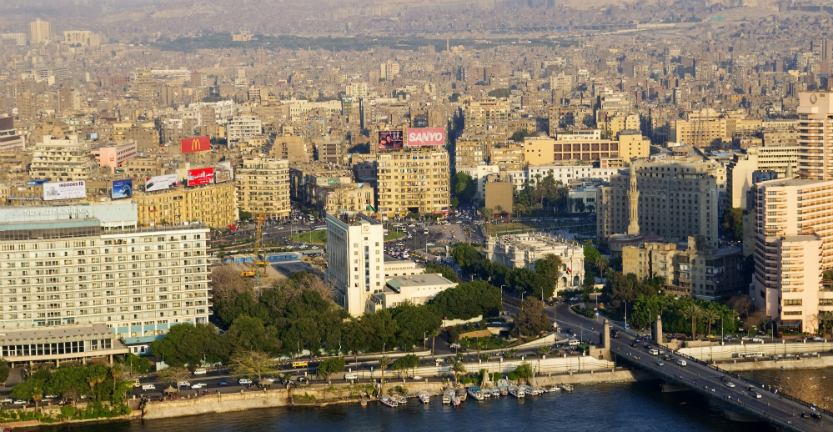
In 2011, hopes of a “new Egypt” inspired mass protests in Cairo which led to the resignation of President Mubarak. Seven years later, the regime change did not bring the social change people hoped for. Egypt is facing a number of straggling social problems, including 34.4% youth unemployment, 27.8% of the population living under the poverty line and deteriorating housing conditions. Yet, something has changed.
“Before 2011, people were more passive about their lives. The revolution, albeit short-lived, empowered citizens to speak up about their political, economic and social rights. People felt obliged to take matters into their own hands.”, says Mariam Tag from Ashoka Arab World, an organisation investing in social entrepreneurs. The youth activism born seven years ago has translated into an engagement in ambitious entrepreneurial initiatives, often motivated by the desire among young people to generate social impact and challenge established structures. How does a growing social entrepreneurship sector in Egypt make the difference?
As part of my PhD research into social innovation in emerging economies, I travelled to Cairo to talk to social entrepreneurs, incubators and other stakeholders to understand key drivers behind and challenges associated with current developments in Egypt’s emerging social innovation space.
Building a more inclusive Egypt
In the immediate aftermath of 2011, civic engagement witnessed a new height, focusing on political organising, campaigning and protests. However, the civil society space soon became increasingly politicised. For instance, governmental efforts to hamper civic engagement cumulated into a new NGO law in 2017, restricting the types of activities NGOs can engage in and requiring Government approval of funds transferred to NGOs. Seven years after the protests, it appears that citizens’ focus has shifted from (political) campaigning towards proactively designing solutions that can effectively tackle social and economic inequalities. Egypt’s young social entrepreneurs, motivated by the desire to take matters into their own hands, have started to come up with innovative means to address some of the country’s most challenging problems.
Just a few metres of Tahrir Square in downtown Cairo, the main arena of Egypt’s revolution, is the GrEEK Campus, a major technology business hub that is home of a growing number of social start-ups. On the top floor resides Rania Salah Seddik, founder and CEO of GebRaa, a social enterprise aimed at supporting marginalised Egyptian artisans in finding new markets for their products. When I visit Rania, she tells me that the economic and social status of the artisan, a major occupation in rural areas, is rapidly declining. Rania works at the intersection of preserving cultural heritage and creating new employment opportunities by connecting rural handicrafts producers to socially conscious national and international customers.
Like Rania, many other entrepreneurial minds have started to design innovative solutions for building a more inclusive Egypt. Radwa Rostom, a construction engineer, founded Hand Over, a social enterprise that develops sustainable construction that suits the needs of slum residents. Radwa works with undergraduate engineering students, whom she trains in her construction methods. The students then work together with slum residents in designing the prototypes. Radwa and her team are revolutionising access to low-cost and sustainable housing that could benefit 48 per cent of Egypt’s population living in slum conditions.
Another social enterprise, Entreprenelle, is contributing to closing the gender gap. Founded by Rania Ayman in 2015, the start-up provides women with entrepreneurship training and networking opportunities to help them realise their ambitions. Entreprenelle’s annual conference “She Can” showcases inspiring success stories of women entrepreneurs. Up until more recently, the issues addressed by GebRaa, Hand Over, Entreprenelle and other emerging social enterprises, were not seen as social problems that can actively be tackled.
Today, Egypt is home to one the fastest growing ecosystems of social entrepreneurship in the Middle East. Social incubators, such as Nahdet el Mahrousa and Rise Egypt, have emerged to support the development of ideas and empower early-stage social ventures. Venture philanthropy organisations, e.g. Alfanar, have started to invest in promising social enterprises in Egypt and throughout the Arab World. Furthermore, some universities, such as the American University in Cairo, have started to offer courses in social entrepreneurship, whilst others support the social innovation efforts of their own students, such as the German University in Cairo (IMAGINE Entrepreneurship Program).
Turning challenges into opportunities
Egypt’s social entrepreneurship space is evolving rapidly but some challenges still hinder the development of an innovation-friendly ecosystem. They include a lack of entrepreneurship education and support, limited access to targeted financing opportunities, and cultural norms that do not actively support engagement in entrepreneurship, e.g. a reliance on Government promoted in the media.
Moreover, many founders still report difficulties in describing their social ventures to others. An important reason is the common understanding that activities in the “social space” are traditionally occupied by charities and non-profits. Egypt’s strong charity culture, embedded in the Muslim norm of charitable giving, is positively connected to a strong awareness of social issues within the population, but it also assumes that these issues are to be primarily addressed through citizens’ and organisations’ charitable engagement (rather than for-profit solutions).
For example, Helm is a social enterprise engaging in cross-sector collaborations with businesses to support the employment process for people with disabilities. The organisation is dedicated to challenging established company practices of paying disabled employees a reduced salary to stay at home, which is often justified as “charity”, given that disabled people might otherwise not be employed at all. Helm is turning the charity model of disability on its head through creating accessible workplaces that enable disabled employees to actively participate in the workplace.
Another important obstacle stems from the increasing politicisation of the social space, as exemplified in the amplified NGO law of 2017. Yet, whilst being intended to restrict civil society engagement, the law also had an unexpected effect. It has contributed to the rise of social enterprise as an organisational form, as many NGOs and non-profits are starting to employ innovative social enterprise models, partly motivated by the desire to gain flexibilities in their operations amidst an increasingly restrictive legal environment for non-profits. Indeed, some of Egypt’s newly founded social enterprises, including Helm, started off as non-profit foundations.
A source of inspiration
Finally, a key challenge remains how social enterprises can work effectively together with organisations from different sectors, including corporations and charities, as well as governments, to realise their goals. It would be misguided to assume that the initiatives of social entrepreneurs will replace current ways of tackling social problems in the Middle East. Indeed, the regions’ straggling social and economic inequalities and challenging institutional landscapes cannot be compared to those present in countries, in which social enterprises are already an established legal category, e.g. the UK and US.
Overall, it is still unclear whether social enterprises will form a separate sector in the Middle East, given the range of challenges faced by social entrepreneurs. However, an important role that social enterprises in the region are likely to play is to be a source of inspiration for corporations to become more socially responsible, e.g. through cross-sector collaborations (take Helm as an example), and non-profit organisations to become more sustainable and future-orientated (as, indeed, has already happened in Egypt, partly motivated by the new NGO law). Similarly, collaborations between social ventures and regional governments might lead to considerable improvements in responding to citizens’ needs (consider Hand Over’s work with governmental institutions to improve housing conditions in the slums of Greater Cairo, or Helm’s most recent project, carried out in cooperation with the Luxor Government, on making the Karnak Temple accessible).
Thus, overall, social enterprises could play an important role in realising some of the hopes that inspired mass protests in the Arab World in 2011. To enable this development, social enterprises in Egypt, and throughout the region, should be supported through the efforts of local governments to invest in innovation-friendly ecosystems, in which citizens’ efforts to generate social impact can flourish.
Isabel Brüggemann, PHD student, [email protected]



Leave a Reply